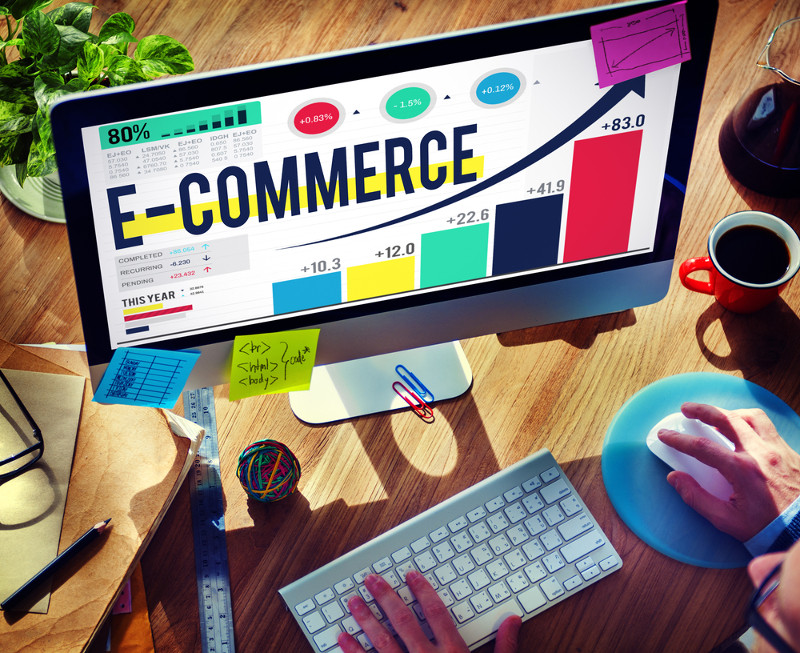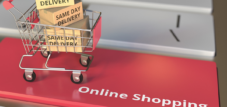Smart logistics for startups – growth, competition, logistics: success strategies for online retailers
Language selection 📢
Published on: September 19, 2018 / update from: September 23, 2024 - Author: Konrad Wolfenstein
🌐🚀 From returns to same-day delivery: How e-commerce startups master logistics
Ideally, a rapidly increasing number of customers, an ever-larger product range and growing shipping volumes: When it comes to growth, e-commerce startups quickly reach their logistical limits. But that's not the end of it yet. The increasing competitive pressure and newly added extras such as the offer of free returns or fast delivery (same-day delivery) further increase the logistical challenges.
Anyone who doesn't invest in efficient structures will quickly lose touch. Because it is precisely functioning logistics that guarantee the business success of online retailers. So it's important to trim the processes for maximum efficiency if you don't want to lose sight of the costs and, on top of that, scare away customers.
Challenges for online retailers
Operators of online shops and especially inexperienced e-commerce startups face three logistical challenges in particular to which they must find answers as quickly as possible:
1. Scalability
While modern web shops, and especially the innovative startups, are characterized by their flexibility, logistics systems are often the exact opposite: they are difficult to adapt to current developments. But especially in the growth phase, logistics processes must be able to grow flexibly. It is necessary for them to be scalable both upwards and downwards and to adapt flexibly to changes.
2. Fluctuating demand
Especially for rapidly growing startups from the e-commerce area, the demand that is difficult to predict is a challenge. "How many of my articles do I store where and how?" Or "with whom and in what kind do I send them optimally to my customers?" are crucial questions. If there is a wrong answer to this, this is quickly associated with high costs and dissatisfaction with the customer. So reliable tools for the forecast of future sales quantities are required.
3. Returns management
Giving customers the opportunity to return their goods causes a lot of logistical effort and increasing costs - which increase even more if the returns are free. Especially for startups or fast-growing companies in industries with a high return rate (e.g. textiles, shoes), this quickly leads to the financial possibilities being overwhelmed.
The logistic answer
In order to drive sustainable growth as a startup, you should invest in flexible and scalable logistics in addition to ensuring efficient processes. Basically, companies have two options here.
1. Investment in warehouse technology
Inefficient shipping processes are a major danger for online retailers because the damaging impact of a poorly managed warehouse is often underestimated. The danger is particularly great if warehouse management does not grow with sales. Just because a small retailer stored the goods on his shelves in his own basement at the start of his business and sent them individually after receiving orders from home, he still has to do the same with 200 orders a day. As the product range increases, such storage quickly becomes confusing. This quickly leads to items being put together incorrectly, packaged inadequately and shipped far too slowly after the order has been placed. What is annoying for customers in this case costs the online retailer money. Because customer satisfaction is a valuable asset and thanks to big players like Amazon or Zalando, buyers are used to a high level of shipping. Negative experiences therefore quickly lead to higher return rates and customers dropping out. This danger can be averted with efficient logistics processes and systems. Effective software control in conjunction with automated provisioning solutions helps to increase the precision of picks, accelerate picking and initiate the shipping process more quickly. This prevents the wrong items from ending up in the package or going to the wrong addressee. The result will be satisfied customers, a falling return rate and increasing sales.
2. Outsourcing
Outsourcing fulfillment to an external logistics service provider is a safe alternative, especially for startups that cannot yet accurately estimate their logistics processes and handling volumes. For a previously calculated price, the online retailer receives storage and shipping of his goods, possibly including optional services such as returns or shop management. This solution is a little more expensive than operating the area yourself, but the retailer is freed from the unpredictability of its logistics. In addition, professional handling of the fulfillment process can not only increase the quality of delivery, but also the profitability of the company.
Fulfillment refers to the entire process of order processing:
- Warehouse logistics – checking the goods upon delivery, safe and professional storage and later provision
- Order processing – picking and preparing orders for shipping, if possible immediately after receipt of the order
- Shipping – same-day dispatch of the goods to ensure quick delivery, if possible on the next day
- Returns logistics – careful allocation, checking, if necessary cleaning and re-storage of the returned items
- Merchandise management system – analysis, coordination and control of goods movements in the warehouse
There are now a large number of fulfillment service providers who offer their customers a variety of extras beyond storage and shipping, such as shop management or professional photography of the items to be listed. With a little research, every web retailer should be able to find the overall package that is right for them. For a successful start in e-commerce, efficient logistics processes are the be-all and end-all. This can be achieved by relying on efficient logistics right from the start. At the same time, the course is set at an early stage for a productive and growth-driven future.
📣 Similar topics
- 🚀📈 Growth in e-commerce: Logistics as a success factor for startups
- 📦🔄 Returns management in focus: Efficient logistics for online retailers
- 📊📦 Forecasting systems for the future: optimally plan demand and inventory
- 🏢📈 Scalability in logistics: growth processes for e-commerce startups
- 🚚💨 Fast delivery and same-day delivery: secure competitive advantages
- 🛒🔧 Efficient logistics systems: How startups benefit from state-of-the-art technology
- 🔄💰 Cost control through logistics optimization: Tips for online retailers
- 🤝📦 Outsourcing of logistics processes: A solution for growing startups
- 🏪📊 Warehouse technology investments: Securing growth through efficient processes
- 🌐⚙️ “End-to-end fulfillment: The key to e-commerce success
#️⃣ Hashtags: #ECommerce #Logistics #Startups #Returnsmanagement #Growth
We are there for you - advice - planning - implementation - project management
☑️ Start-up and industry expert, here with its own Xpert.Digital industry hub with over 2,500 specialist articles
I would be happy to serve as your personal advisor.
You can contact me by filling out the contact form below or simply call me on +49 89 89 674 804 (Munich) .
I'm looking forward to our joint project.
Xpert.Digital - Konrad Wolfenstein
Xpert.Digital is a hub for industry with a focus on digitalization, mechanical engineering, logistics/intralogistics and photovoltaics.
With our 360° business development solution, we support well-known companies from new business to after sales.
Market intelligence, smarketing, marketing automation, content development, PR, mail campaigns, personalized social media and lead nurturing are part of our digital tools.
You can find out more at: www.xpert.digital - www.xpert.solar - www.xpert.plus






























